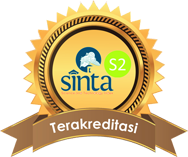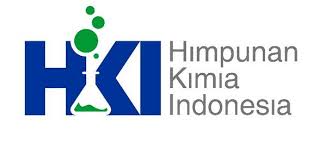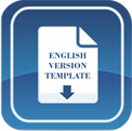Metacognitive Assesment Profile of Prospective Chemistry Educators
DOI:
https://doi.org/10.15575/jtk.v8i2.28147Keywords:
cognitive knowledge, cognitive regulation, metacognitive awareness, prospective chemistry educatorsAbstract
Metacognitive awareness (MA) plays an important role in classroom learning as it enhances self-teaching capabilities on students. Therefore, it is necessary to know the level of awareness possessed by a teacher. This study aimed to describe metacognitive awareness profile of prospective chemistry educators. The method of research is descriptive quantitative using survey methods. The participants consisted of students undergoing their final semester. The instrument used was the MAIT-18 (Metacognitive-Awareness Inventory for Teachers-18). This instrument has two indicators, specifically cognitive knowledge and regulation. The results showed that students had a good level of cognitive knowledge and regulation with 80% and 77%, respectively. Therefore, the overall percentage of metacognitive awareness obtained was 80%. These results suggest that prospective chemistry educators have a good awareness of metacognition. This is indicates they can influence positive things on students, foster autonomy in teaching and learning, also can be an asset to be an effective teacher.
References
Abdellah, R. (2015). Metacognitive awareness and its relation to academic achievement and teaching performance of pre-service female teachers in Ajman University in UAE. Procedia - Social and Behavioral Sciences, 174, 560–567. https://doi.org/10.1016/j.sbspro.2015.01.707
Adhitama, R. S., Kusnadi, K., & Supriatno, B. (2018). Kesadaran metakognitif siswa dalam pembelajaran berbasis proyek pada pokok bahasan pencemaran lingkungan. Assimilation: Indonesian Journal of Biology Education, 1(1), 39–45. https://doi.org/10.17509/aijbe.v1i1.11455
Ainun, H. F., Putri Setyowati, A., Dewantari, R., Dwi Wulandari, A., & Adi Prayitno, B. (2019). Profil kesadaran metakognisi siswa di salah satu SMA Swasta di Sragen. BIOSFER : Jurnal Biologi Dan Pendidikan Biologi, 3(1). https://doi.org/10.23969/biosfer.v3i2.975
Angraini, L., & Kerinci, I. (2021). Analisis kesadaran metakognitif mahasiswa jurusan tadris biologi terhadap pembelajaran biologi. Natural Science : Jurnal Penelitian Bidang IPA Dan Pendidikan IPA, 7(2), 116–124. https://doi.org/10.15548/nsc.v7i2.2583
Ardhana, I. A. (2020). Dampak Process-Oriented Guided-Inquiry Learning (POGIL) terhadap pengetahuan metakognitif siswa pada topik asam-basa. Hydrogen: Jurnal Kependidikan Kimia, 8(1), 1. https://doi.org/10.33394/hjkk.v8i1.2545
Balashov, E., Pasicichnyk, I., & Kalamazh, R. (2021). Metacognitive awareness and academic self-regulation of hei students. International Journal of Cognitive Research in Science, Engineering and Education, 9(2), 161–172. https://doi.org/10.23947/2334-8496-2021-9-2-161-172
Balcikanli, C. (2011). Metacognitive awareness inventory for teachers (MAIT). Electronic Journal of Research in Educational Psychology, 9(3), 1309–1332. https://doi.org/10.25115/ejrep.v9i25.1620
Cihanoglu, M. O. (2012). Metacognitive awareness of teacher candidates. Procedia - Social and Behavioral Sciences, 46, 4529–4533. https://doi.org/10.1016/j.sbspro.2012.06.290
Fauzi, A., & Sa’diyah, W. (2019, October). The metacognition of pre-service biology teachers: awareness, skills, understanding, and practices. [Conference presentation]. In 6th International Conference on Community Development (ICCD 2019) (pp. 27-32). Atlantis Press. https://doi.org/10.2991/iccd-19.2019.8
Firmansyah, D., & Hendra, K. (2019). Peran kesadaran metakognitif terhadap kemampuan pemecahan masalah matematis (the role of metacognitive awareness on mathematical problem solving skills). Jurnal Theorems, 3(2), 99–104. https://doi.org/10.31949/th.v3i2.1183
Flavell, J. H., Miller, P. H., & Miller, S. A. (2002). Cognitive Development (4th ed.). Upper Saddle. River, NJ: Pearson Education Inc.
Haryanti, D., Bistari, & Hamdani. (2013). Memperbaiki pengetahuan dan kemampuan prosedural siswa melalui penugasan berbasis kesalahan. Jurnal Pendidikan Dan Pembelajaran Khatulistiwa, 123(10), 2176–2181. https://doi.org/10.26418/jppk.v2i2.1134
Huseyin. (2016). Metacognitive awareness and academic motivation: a cross-sectional study in teacher education context of Turkey. Procedia - Social and Behavioral Sciences, 232, 109–121. https://doi.org/10.1016/j.sbspro.2016.10.035
Iskandar, S. (2014). Pendekatan Keterampilan Metakognitif dalam Pembelajaran Sains di Kelas. Erudio Journal of Educational Innovation, 2(2), 13–20. Retrieved from https://erudio.ub.ac.id/index.php/erudio/article/view/151
Jiang, Y., Ma, L., & Gao, L. (2016). Assessing teachers ’ metacognition in teaching : The Teacher Metacognition Inventory. Teaching and Teacher Education, 59, 403–413. https://doi.org/10.1016/j.tate.2016.07.014
Junita, B. A. (2015). Implementasi Think Aloud Pair Problem Solving (TAPPS) berbantuan media kartu bergambar terhadap kemampuan pemecahan masalah danhasil belajar kognitif siswa. Hydrogen: Jurnal Kependidikan Kimia, 3(2), 274. https://doi.org/10.33394/hjkk.v3i2.685
Kallio, H., Virta, K., & Kallio, M. (2018). Modelling the components of metacognitive awareness. International Journal of Educational Psychology, 7(2), 94–122. https://doi.org/10.17583/ijep.2018.2789
Kallio, H., Virta, K., Kallio, M., Virta, A., Hjardemaal, F. R., & Sandven, J. (2017). The utility of the metacognitive awareness inventory for teachers among in-service teachers. Journal of Education and Learning, 6(4), 78. https://doi.org/10.5539/jel.v6n4p78
Kodri, K., & Anisah, A. (2020). Analisis keterampilan metakognitif siswa sekolah menengah atas dalam pembelajaran ekonomi abad 21 di Indonesia. Edunomic Jurnal Pendidikan Ekonomi, 8(1), 9. https://doi.org/10.33603/ejpe.v8i1.2815
Maswandi, F. (2015). Analisis kemampuan metakognisi siswa berasrama terhadap materi ekosistem the analysis of metacognitive ability of boarding school students towards the subject on ecosystem. Paper presented at Seminar Nasional XII Pendidikan Biologi, Solo: FKIP UNS. Retrieved from https://jurnal.uns.ac.id/prosbi/article/view/6780
Muhali, M. (2013). Analisis Kemampuan Metakognisi Siswa dalam Pembelajaran Kimia SMA. Hydrogen: Jurnal Kependidikan Kimia, 1(1), 1. https://doi.org/10.33394/hjkk.v1i1.572
Parlan, P., Minata, Z. S., Suryadharma, I. B., Sulistina, O., & Marfu’ah, S. (2022). The effect of triangulation-based metacognitive learning strategy on students’ chemistry literacy and learning achievement. JTK (Jurnal Tadris Kimiya), 7(1), 14–24. https://doi.org/10.15575/jtk.v7i1.14811
Pillena, L. S., Cahyana, U., & Purwanto, A. (2019). Pengaruh media mobile learning dan kemampuan metakognitif terhadap keterampilan proses sains siswa. JTK (Jurnal Tadris Kimiya), 4(2), 157–167. https://doi.org/10.15575/jtk.v4i2.5132
Rinaldi, R. (2017). Kesadaran metakognitif. Jurnal RAP (Riset Aktual Psikologi Universitas Negeri Padang), 8(1). https://doi.org/10.24036/rapun.v8i1.7954
Riyadi, I. (2022). Kesadaran metakognitif, keyakinan efikasi diri selama pembelajaran daring: study deskriptif mahasiswa geografi. Jurnal Pendidikan: Riset dan Konseptual, 6(1), 104–111. https://doi.org/10.28926/riset_konseptual.v6i1.452
Safitri, P. T., Yasintasari, E., Putri, S. A., & Hasanah, U. (2020). Analisis kemampuan metakognisi siswa dalam memecahkan masalah matematika model PISA. Journal of Medives : Journal of Mathematics Education IKIP Veteran Semarang, 4(1), 11. https://doi.org/10.31331/medivesveteran.v4i1.941
Sarıcoban, A. (2015). Metacognitive awareness of pre-service english language teachers in terms of various variables. Procedia - Social and Behavioral Sciences, 186(2007), 664–669. https://doi.org/10.1016/j.sbspro.2015.04.135
Schraw, G., & Dennison, R. S. (1994). Assessing metacognitive awareness. Contemporary Educational Psychology, 19(4), 460–475. https://doi.org/https://doi.org/10.1006/ceps.1994.1033
Sholihah, M., & Sofiyana, M.S. (2020). Analysis of metacognitive awareness for prospective teachers at Balitar Islamic University. Jurnal Pendidikan Biologi, 12(3). https://doi.org/10.17977/um052v12i3p202-206
Sitompul, L. R. (2022). Kesadaran metakognitif mahasiswa program studi pendidikan biologi universitas pelita harapan pada mata kuliah perencanaan strategi asesmen pembelajaran biologi. Edukatif : Jurnal Ilmu Pendidikan, 4(2), 2482–2490. https://doi.org/10.31004/edukatif.v4i2.2378
Smith, A. K., Black, S., & Hooper, L. M. (2020). Metacognitive knowledge, skills, and awareness: a possible solution to enhancing academic achievement in african american adolescents. Urban Education, 55(4), 625–639. https://doi.org/10.1177/0042085917714511
Sudirman, S., & Yusnaeni, Y. (2020). Students’ metacognitive and critical thinking skills in thermochemistry. JTK (Jurnal Tadris Kimiya), 5(2), 242–251. https://doi.org/10.15575/jtk.v5i2.9616
Sumadyo, M., & Purwantini, L. (2018). Penilaian kemampuan metakognitif siswa SMA dengan menggunakan algoritma k-means. Paper Presented At The Prosiding Seminar Nasional Energi & Teknologi (Sinergi), 81-88, Bekasi: Fakultas Teknik, Universitas Islam "45.
Tanti, N., Widada, W., & Haji, S. (2018). Metakognisi siswa dalam pemecahan masalah matematika siswa SMA dalam pembelajaran matematika berorientasi etnomatematika Rejang Lebong. Jurnal Pendidikan Matematika Raflesia, 3(1), 41-54. https://doi.org/10.33369/jpmr.v3i1.6286
Veenman, M. V. J., van Hout-Wolters, B. H. A. M., & Afflerbach, P. P. (2006). Metacognition and learning: conceptual and methodological considerations. Metacognition and Learning, 1, 3–14. https://doi.org/10.1007/s11409-006-6893-0
Wardana, R. W., Prihatini, A., & Hidayat, M. (2021). Identifikasi kesadaran metakognitif peserta didik dalam pembelajaran fisika. PENDIPA Journal of Science Education, 5(1), 1-9. https://doi.org/10.33369/pendipa.5.1.1-9
Widodo, W. (2015). Pengaruh kemampuan metakognisi terhadap hasil belajar matematika di SMP Negeri 2 Leuwimunding Kabupaten Majalengka. Nusantara of Research : Jurnal Hasil-Hasil Penelitian Universitas Nusantara PGRI Kediri, 2(2). Retrieved from https://ojs.unpkediri.ac.id/index.php/efektor/article/view/171
Yıldız, H., & Akdağ, M. (2017). The effect of metacognitive strategies on prospective teachers’ metacognitive awareness and self efficacy belief. Journal of Education and Training Studies, 5(12), 30. https://doi.org/10.11114/jets.v5i12.2662
Downloads
Published
How to Cite
Issue
Section
Citation Check
License
Authors who publish with this journal agree to the following terms:
- Authors retain copyright and grant the journal right of first publication with the work simultaneously licensed under a Creative Commons Attribution-ShareAlike that allows others to share the work with an acknowledgement of the work's authorship and initial publication in this journal.
- Authors are able to enter into separate, additional contractual arrangements for the non-exclusive distribution of the journal's published version of the work (e.g., post it to an institutional repository or publish it in a book), with an acknowledgement of its initial publication in this journal.
- Authors are permitted and encouraged to post their work online (e.g., in institutional repositories or on their website) prior to and during the submission process, as it can lead to productive exchanges, as well as earlier and greater citation of published work (See The Effect of Open Access).









